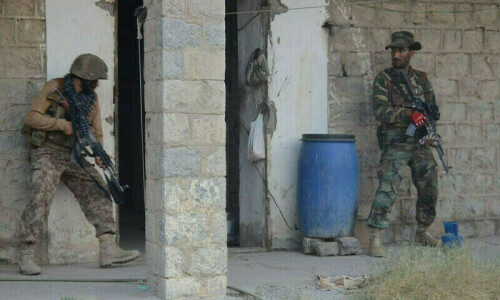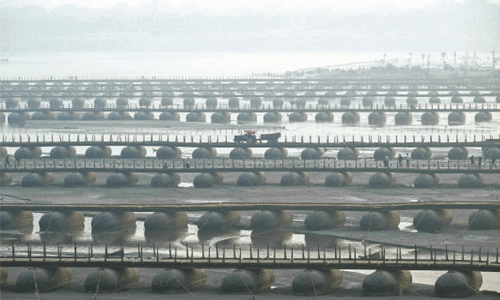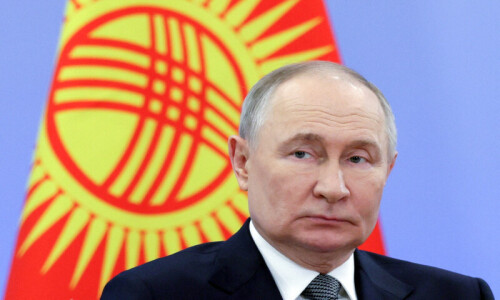WASHINGTON: The United States is not asking Pakistan to change or repeal the blasphemy law but is encouraging the government to prevent possible discriminations and potentials for abuse, says Assistant Secretary of State for Democracy and Human Rights Michael H. Posner.
“We are reluctant to prescribe changes and alternatives,” said Mr Posner when asked what changes he believed Pakistan needed to make to prevent discriminatory applications of this law. “But we do believe that people should be free to practice their religion.”
In an interview to Dawn, the US official said the blasphemy law would be one of the subjects he would discuss with Pakistani officials, opposition leaders and civil society activists during his visit to Pakistan this week.
“We are very mindful of playing a constructive role in eliminating applications that are discriminatory,” said Mr Posner when asked if he would urge Pakistani leaders to repeal the blasphemy law.
Mr Posner pointed out that many in Pakistan also were concerned about “discriminatory applications and potentials for abuse” in implementing this law.
“We do not want to focus on her case,” said the US official when asked if he would also discuss the case of a Christian woman sentenced to death under the blasphemy law. “We believe in the due process of law, i.e. a person is presumed innocent until proven guilty.”
The US, he said, was “more broadly focused on possible discriminatory applications of the law”.
Democracy is another subject that Mr Posner is keen to discuss with his hosts in Pakistan and he believes that with a free press, a strong civil society and an independent judiciary, the country has the potential to become a strong democracy.
He disagreed with those who say that the Pakistani media was ‘too free’ and needed to be muzzled.
“We believe in a free press. Free debate is a healthy thing but journalists should be responsible and should report honestly and fairly.”
Reminded that some in the Pakistani media applauded the man who assassinated Governor Salman Taseer, Mr Posner said: “I do not believe the right solution is to put constraints on the media.”
Responding to another question about the slain governor, the US official said: “We deplore his murder and believe that Governor Taseer was a very positive force and a voice for tolerance” who made a major contribution to projecting Pakistan as a tolerant and modern state.
“I am not in a position to speculate,” said the US official when asked if he believed Pakistan’s nascent democracy was under threat. “We are working to strengthen a partnership with Pakistan, not just between two governments but also between two peoples.”
During this visit, “I will try to get as broad a view as possible”, he added. “Pakistan is an important country and ally. A strong democracy in Pakistan is in the world’s interest.”
The principled US position, he said, was that the government ought to be based on its commitment to democracy, the rule of law, religious freedom, a free media and to women’s rights. Mr Posner said he was “less likely to get into the details of a political change” in Pakistan during his discussions with government officials and politicians.
“We are friends of Pakistan. We believe in a strong partnership grounded in a principled commitment to our values.”
Mr Posner said that after the visit he would be in a better position to say whether the present Pakistani government would complete its tenure or not. The US official said that while Pakistan confronted many challenges, “the country has great potentials and resources and a vibrant and educated middle class”.
“It is in a very tough neighbourhood,” said Mr Posner when asked what was the greatest challenge that Pakistan faced. And there were many challenges that put pressure on all institutions of the state, he said.
Mr Posner disagreed with a suggestion that Pakistan was slowly becoming a failed state and pledged US commitment to further strengthen the country.
“We are working closely with the government of Pakistan to strengthen democratic institutions and enhance a new and stable civil society.”
The US wanted to retain close relations with all institutions, including the military, said Mr Posner when asked if the US had closer relations with the Pakistani military or with the elected government.















































Dear visitor, the comments section is undergoing an overhaul and will return soon.